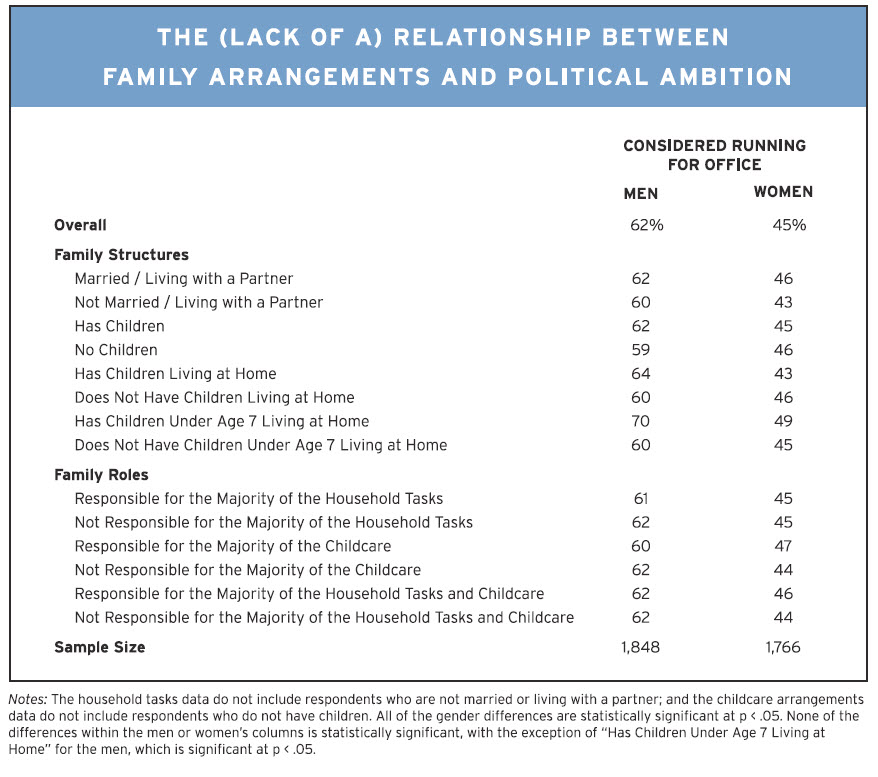Will becoming a grandmother change Hillary Clinton’s decision to run for president or not? Some media outlets are asking. “As much fun as it might be for political junkies, pundits, and operatives to wonder whether and how a grandchild will factor into Clinton’s decision calculus,” writes Jennifer Lawless in her recent study that looks at the relationship between family arrangement and political ambition,
the truth of the matter is that it is highly unlikely to matter. The evidence I present in this paper indicates that family roles and responsibilities exert no impact on potential candidates’ decisions to run for office—and that is the case for both women and men. If having a child and being its primary caretaker does not stunt women’s political ambition, then it is hard to imagine how being a grandmother would.
Lawless, a nonresident senior fellow in Governance Studies and a government professor at American University, focused particularly on “whether being married, having children, and having other household responsibilities affect the desire to run for office.” The research is based on data from the 2011 Citizen Political Ambition Study (“a national survey of a random sample of equally credentialed women and men who are well-positioned to serve as future candidates for all elective offices”).
As her chart below shows, men and women with children under age 7 living at home were the most likely in their gender cohorts to consider running for office, while men and women with no children at home were the least likely to consider running for office.
“Put simply,” says Lawless, “family structures and roles do not affect potential candidates’ political ambition, either directly or indirectly.”
Download the paper for additional analysis here.
Elina Saxena contributed to this post.




Commentary
Men and Women with Young Children at Home Are Most Likely to Consider Running for Office
July 17, 2014